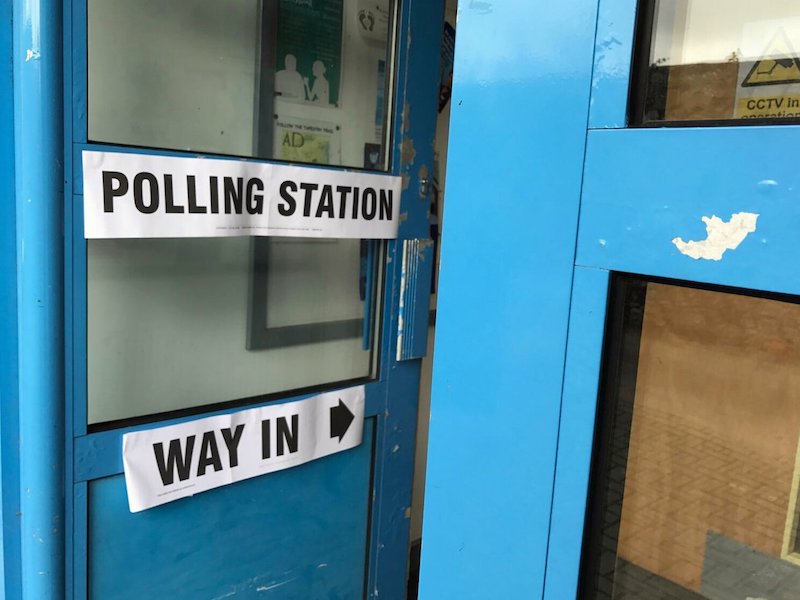On Sept. 18, Loyola students were offered an opportunity to attend a Zoom lecture regarding the 2020 election in celebration of Constitution Day, a federal observance recognizing the adoption of the United States Constitution. The lecture, hosted by Dr. Doug Harris of the university’s political science department, featured Kyle Kondik, the managing editor of the nonpartisan political newsletter, “Sabato’s Crystal Ball,” as a speaking guest.
Kondik primarily discussed the entrenched partisanship prevalent in America’s two strongest parties, the effects of the pandemic on President Donald Trump’s approval rating and poll numbers in contrast to former Vice President Joe Biden’s, improvements in polling data from the previous presidential election, and prospects concerning election night.
The Pandemic: Are voters changing their minds?
“More self-identified Republicans are behind Trump than the previous election, and more self-identified Democrats are behind Biden than behind Hillary than the previous election,” Kondik said. “On March 1, right after Joe Biden won the Democratic primary, and right around the time people were becoming aware of COVID-19, Trump’s approval rating was 6 points under his disapproval rating,” Kondik said, citing RealClearPolitics. “It’s not good, but not necessarily unfavorable.”
Overall, President Trump’s response to the coronavirus pandemic has been met mostly with criticism rather than praise, but Kondik explained that “many people are voting based on their loyalties to their respective parties,” where culture is a much bigger influence on this election than it has been in most previous elections. Even with something as detrimental as a global pandemic, it is becoming more apparent that President Trump’s most avid critics and most loyal supporters are fully prepared to fill in their ballots no matter how the president performs.
Despite today’s political climate, Kondik indicates that the COVID-19 pandemic has affected essentially everyone in the country, “particularly college students,” which is supported by President Rev. Brian F. Linnane’s decision to have all of Loyola’s classes conducted fully online for the fall semester this year.
“[We have gone from] a time of peace and prosperity to one of the most turbulent times in recent American history,” Kondik said.
The Polls: Can national polling be trusted after the results of the 2016 election?
Kondik emphasized that some pollsters used to not have to account for some “white non-college voters” in the past, and that a large issue with polling data was that much of this demographic was unaccounted for, despite it contributing greatly to President Trump’s success in the 2016 election, particularly because it also includes “rural small-town areas in the midwest, which, overtime, became strongholds for Republican voters.” Kondik is confident that polling data is generally more accurate this time around.
Kondik also provided his own predictions.
“Biden will do better amongst white college voters than any other Democrat before has done,” speaking to the statistic that most white college voters have tended to vote Democrat and most white non-college voters have tended to vote Republican. “Education plays a much larger role in this election than in previous ones.”
Ultimately, Kondik concluded that if the polls directly translated to how people voted, “it would be surprising if Trump won,” and if Biden’s lead notably shrinks in polling data, then “it will be more of a 50/50 race.”
The Election: what to watch
“The vote counting will be different this year, as a lot of states, due to pandemic and an ongoing trend, have newly instituted voting by mail, so there may be many reasons the states will be drawn out in their counting,” Kondik said.
States and localities have opted for different applications of voting by mail and early accessibility to ballots as each state’s history and background with the process differs.
“Florida has long had a robust vote-by-mail and early voting apparatus,” Kondik said. “[A] clear winner of Florida on election night will often guarantee who has won the election, being a key battleground state.” Due to the unique nature of this election happening alongside the pandemic, predicting its outcome remains as uncertain as it has been for many years.
Presidential election years are pertinent times for citizens to participate in America’s democratic republic and give their opinion on how the country should be run. LoyolaVotes, Loyola’s nonpartisan voting initiative, provides resources on registering to vote and works to ensure every voice is heard at the ballot box. Click here for more information about the taskforce and find out how to stay engaged as the country approaches November.
Keep up-to-date with The Greyhound for more news on politics and other Loyola events.
Featured Image courtesy of Helen Orozco via Flickr Creative Commons


















































































































